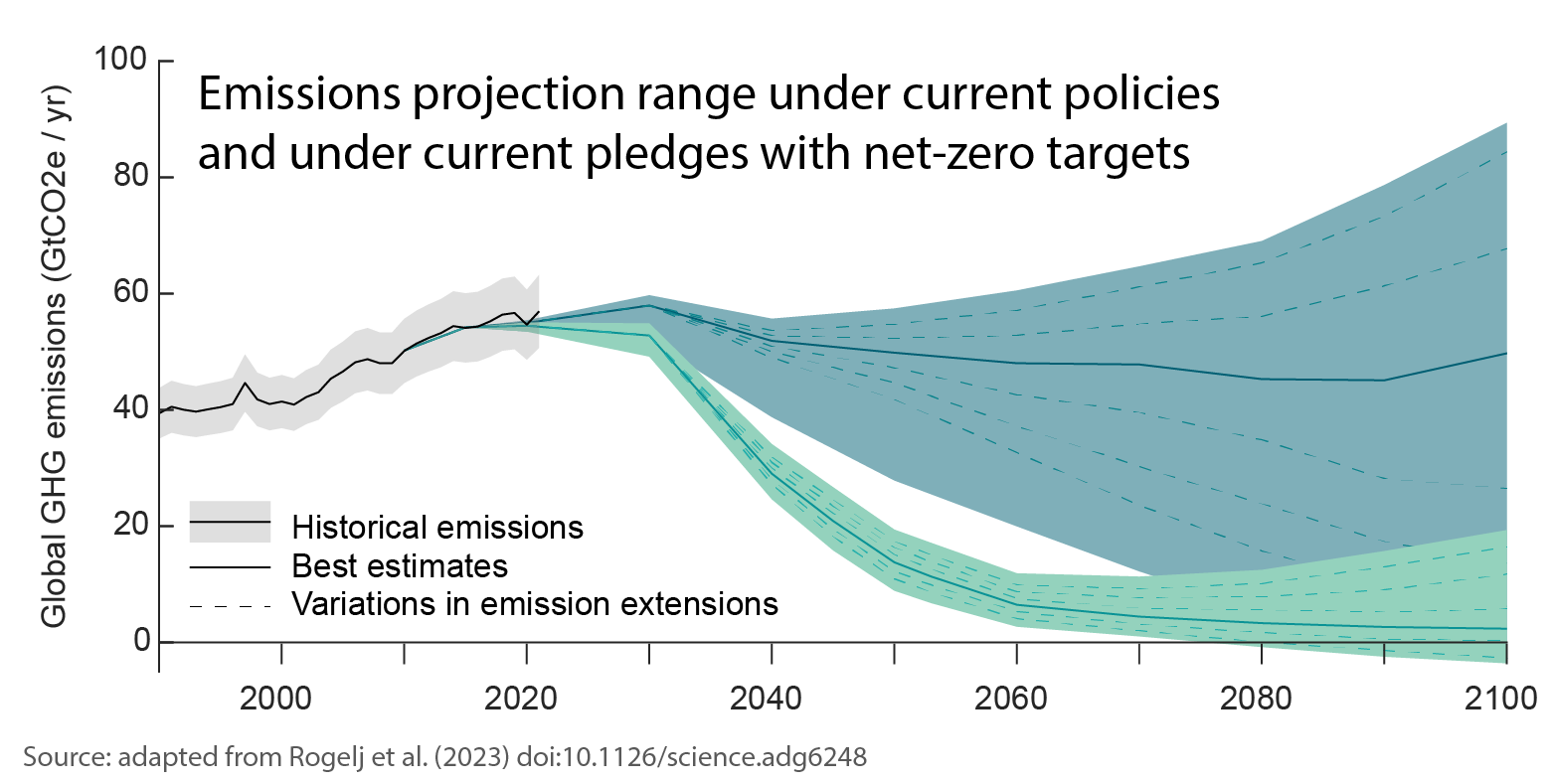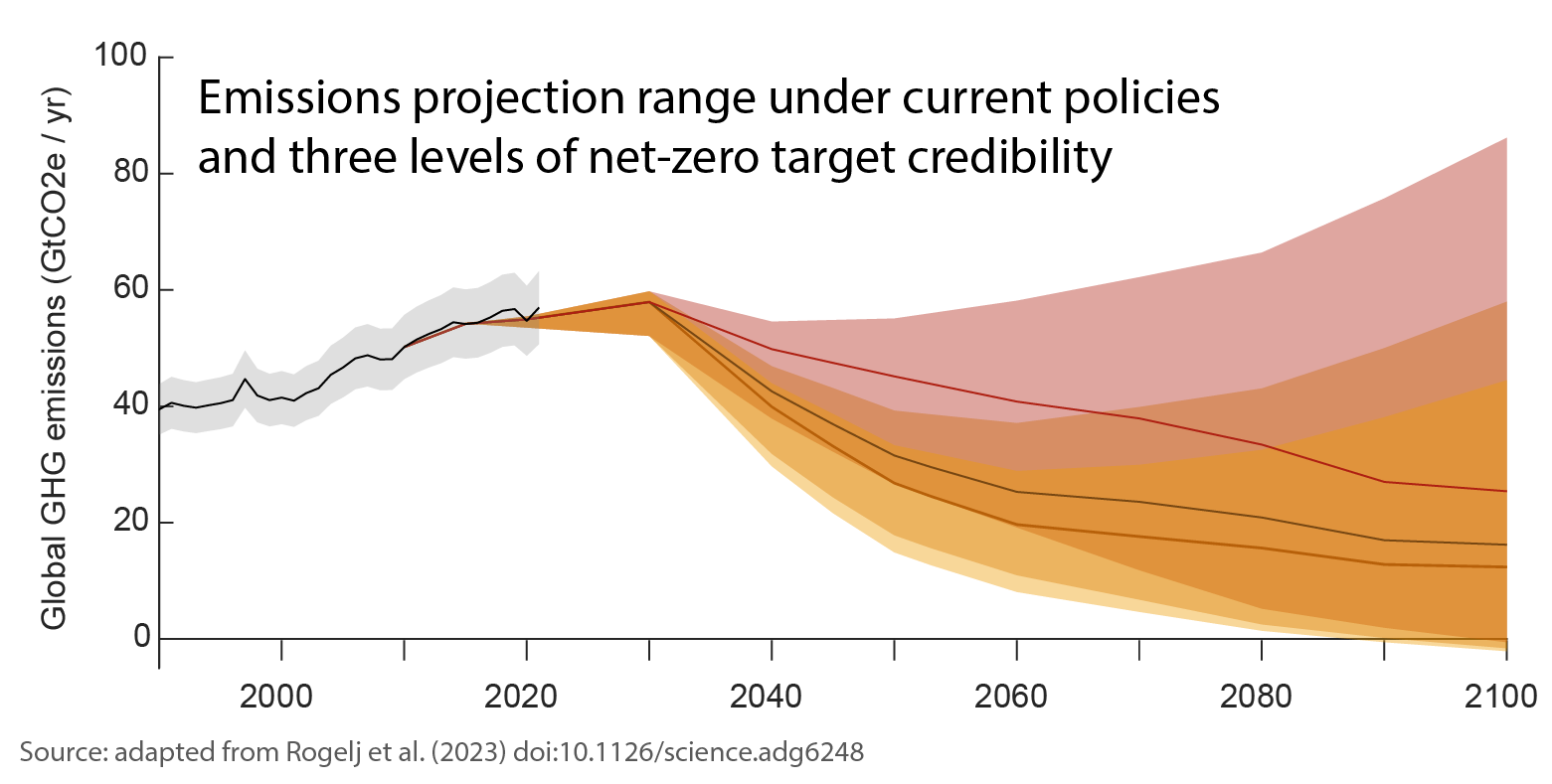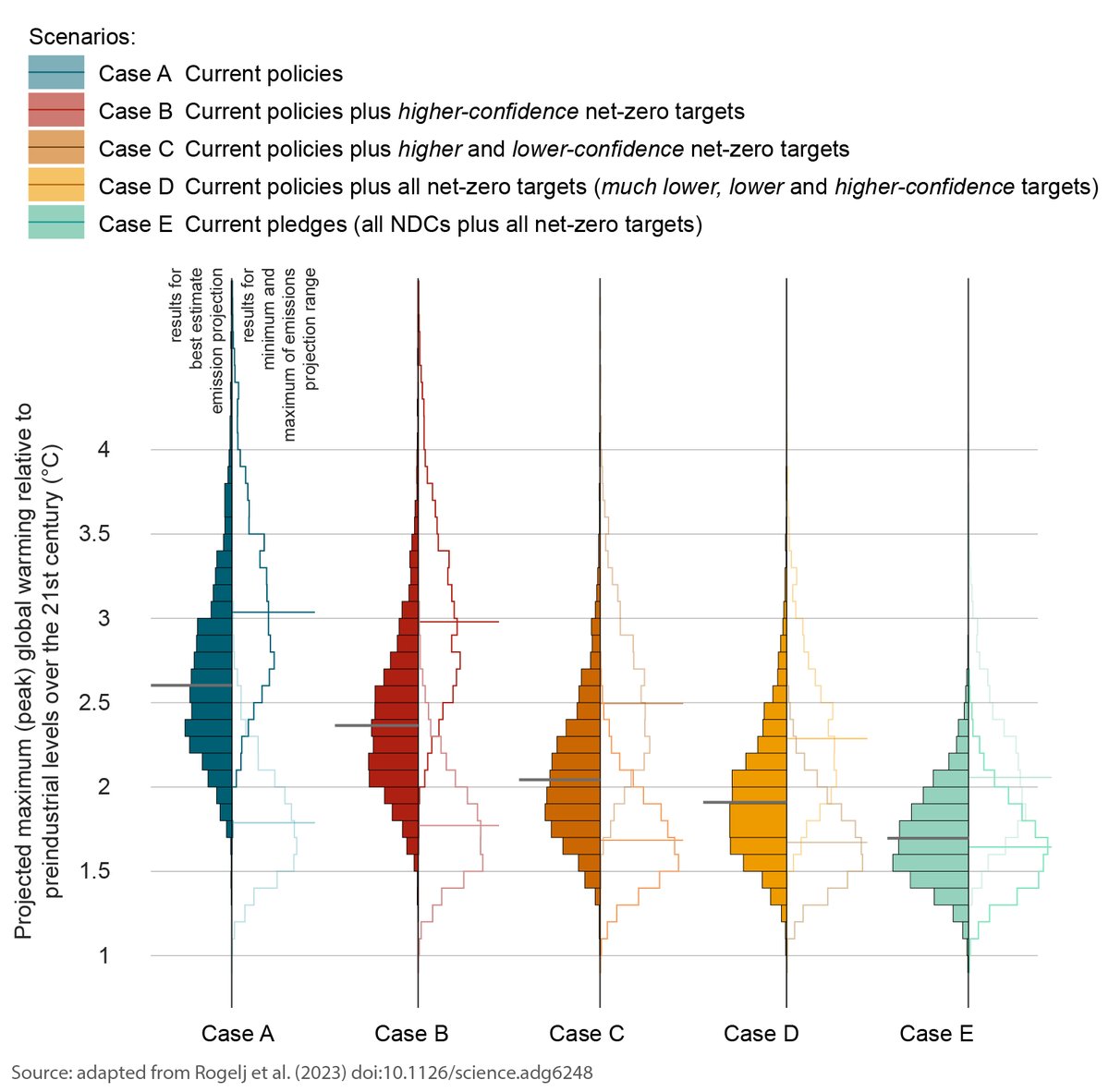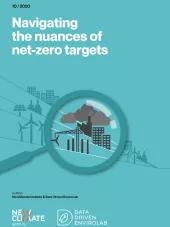In this Science article, the authors researchers ranked 90% of global net-zero greenhouse gas emissions pledges as providing low confidence in their full implementation.
The researchers recommend nations make their targets legally binding and back them up with long-term plans and short-term implementation policies to increase the likelihood of avoiding the worst impacts of climate change.
The team included researchers from Imperial College London, the International Institute for Applied Systems Analysis, the World Resources Institute, the University of California–Berkeley, the Netherlands Environmental Assessment Agency, the Institute for Environmental Studies, NewClimate Institute, the Copernicus Institute of Sustainable Development, and the Universidade Federal do Rio de Janeiro.
Abstract
Global climate policy is undergoing a rite of passage. What used to be a conversation about ambitious target setting now focuses increasingly on implementation and interventions to achieve these targets. This liminal transition from ambition to implementation is complex and presents deep ambiguities that are challenging for scientists to communicate and decision-makers to fathom. A critical question is whether we can believe that countries will deliver on the commitments they have made. By evaluating policy characteristics of countries’ net-zero targets, we can assign the targets credibility ratings, then estimate how greenhouse gas (GHG) emissions and temperature are differentiated by our confidence in the targets. When we consider the credibility of current climate pledges, our assessment shows that the world remains far from delivering a safe climate future.












